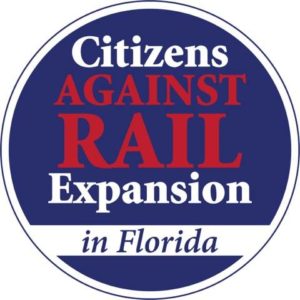
Citizens Against Rail Expansion in Florida (CARE FL) today announced that the CARE FL Candidate Report Card 2018 survey is being sent to candidates seeking public office for the following seats: U.S. Senate, Congressional Districts 8, 18 and 20, Governor, the Florida Legislature, and county and select city commissions in the Treasure Coast region– some 76 in total. [Read more…] about CARE FL to Survey Federal, State and Local Candidates to Assess Position on All Aboard Florida/Brightline
